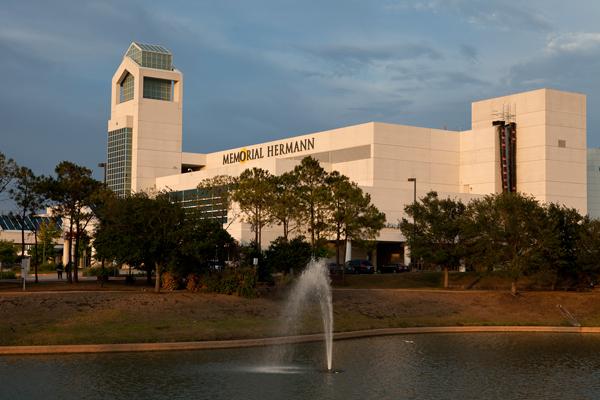 For most, the words “breast cancer” don’t conjure happy feelings. But here’s some breast cancer news that isn’t bleak: Approximately 2. 5 million women who are alive today had breast cancer – and overcame it.
For most, the words “breast cancer” don’t conjure happy feelings. But here’s some breast cancer news that isn’t bleak: Approximately 2. 5 million women who are alive today had breast cancer – and overcame it.
Although statistics say that about one in eight women will develop breast cancer in her lifetime, the number of women who develop and die from the disease declines each year. Why? The likeliest answer is increased screenings and advanced breast cancer treatment.
From statistics to screenings to treatments, breast cancer is a big subject – and it might seem hard to wrap your mind around. The breast cancer basics below can help you understand the disease and take steps to lower your risk.
Reducing Your Risk
Measuring breast cancer risk isn’t an exact science. Doctors can’t always explain why some women develop the disease and others don’t. Some unchangeable factors, such as being age 55 or older, up your risk. Other risk factors include:
- Starting your period before age 12
- Not bearing children by age 30
- Having a family history of breast cancer
- Having changes in the cancer-related genes BRCA1 or BRCA2
However, certain risk factors, such as drinking and physical activity, can be altered with healthy lifestyle changes. Following these tips may reduce your risk:
- Consume less than one alcoholic beverage per day
- Stay at a healthy weight for your height, especially after menopause
- Work out four or more hours a week
 Stick to Screenings
Stick to Screenings
Experts offer slightly different suggestions when it comes to breast cancer screening. The American Cancer Society recommends yearly mammograms starting at 40 and a clinical breast exam by a doctor every three years for women in their 20s and 30s, or every year for women 40 and older. Women with a heightened breast cancer risk should ask their doctors about the risks and benefits of an annual MRI and mammogram. Talk with your doctor to decide the best screening schedule for you.
“Breast cancer is the second leading cause of cancer death in women, but if caught earlier, it’s easier to treat,” says Glen Garner, M.D., a general surgeon affiliated with Memorial Hermann Southeast Hospital. Dr. Garner’s main focus as a surgeon involves diseases of the breast. But he has also experienced breast cancer from the other side – both his wife and his mother were diagnosed with the disease.
“I feel my personal experience with breast cancer gives me an opportunity to help my patients and be more empathetic to their diagnosis and their needs before, during and after surgery,” Dr. Garner says. “And as someone whose family has been affected by breast cancer, I urge women to stick to the screening schedule recommended by their doctors.”
The Breast Care Center at Memorial Hermann Southeast
At Memorial Hermann Southeast Hospital, we take this fight seriously. We offer exceptional expertise, state-of-the-art technology and a wide range of screening and diagnostic tools to care for each patient. Just as each woman is unique, so too is our Breast Care Center. Here’s why:
 Focused Expertise, Fast Results
Focused Expertise, Fast Results
The Breast Care Center has a specialized, fellowship-trained breast radiologist. This means that the doctor reading your mammogram or performing your biopsy has the highest level of experience and education in breast imaging. “As a specialist, my goal is to catch breast cancer earlier,” explains Jibi Thomas, M.D., a fellowship-trained breast radiologist affiliated with Memorial Hermann Southeast. “Most mammograms are not read by specialists. My expertise enables me to detect abnormalities earlier.”
Dr. Thomas also meets with patients directly to discuss their results. Patients can ask questions and learn results faster. Most women undergoing a diagnostic mammogram know the outcome before leaving the Center. “Waiting for results can be difficult,” says Dr. Thomas. “We try to reduce anxiety by providing information quickly. We can move forward with treatment right away if necessary.”
Comprehensive Services
The Breast Care Center at Memorial Hermann Southeast offers a wide range of advanced screening and diagnostic tools, including breast tomosynthesis (an innovative 3-D technology that helps physicians detect smaller tumors sooner), breast magnetic resonance imaging (MRI), breast ultrasound, ultrasound-guided breast biopsy and stereotactic biopsy. The Center also helps facilitate care if cancer is found. Our staff works closely with oncologists, surgeons and other specialists, discussing each patient case to ensure the best care. The Center’s Nurse Navigator helps the patient throughout the process, including making appointments, assisting with biopsies and even holding her hand through a procedure. “My mother survived breast cancer,” explains Dr. Thomas. “She’s the reason I specialize in breast imaging and believe in the difference a comprehensive breast care center can make.”
The Cancer Program at Memorial Hermann Southeast is accredited by the American College of Surgeons Commission on Cancer and has earned its prestigious Outstanding Achievement Award.
Schedule your mammogram and ask about breast tomosynthesis at Memorial Hermann Southeast today by calling 281.929.6485. You can also schedule your appointment online at memorialhermann.org.
 Stick to Screenings
Stick to Screenings Focused Expertise, Fast Results
Focused Expertise, Fast Results

